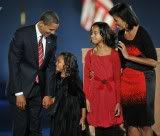 Kathy M. Kristof in an excellent article in the Los Angeles Times recently wrote about the value of parents becoming what I have termed financial mentors for their children. The article appeared on the front page of the Business section earlier this August. It began with Kathy using a real life illustration with a parent friend of hers:
Kathy M. Kristof in an excellent article in the Los Angeles Times recently wrote about the value of parents becoming what I have termed financial mentors for their children. The article appeared on the front page of the Business section earlier this August. It began with Kathy using a real life illustration with a parent friend of hers:"David Strauss knew he needed to do a better job teaching his children about money, but the layoff notice he received in January gave it a sense of urgency. He indicated that it made the discussion a lot more real."
"Knowing that the downsizing was coming, Strauss had already started talking to 17-year-old Daniel and 12-year-old Alexandra about wants versus needs and discussing how the family expected to cut back. Strauss further indicated that the kids were much more interested in talking about money now."
The rest of this excellent article went on to show how parents of kids in their teens and preteens could go about being helpful financial mentors to these children.
Begin Early
 Kathy was not, however, aware that there is much that parents can do to financially mentor even much younger kids, an issue that I address in my book, The Positive Parent: Raising Healthy, Happy and Successful Children, Birth through Adolescence. There I provide guidelines for Teaching Children to Be Financially Successful and Giving. I suggest and illustrate the following overall approach:
Kathy was not, however, aware that there is much that parents can do to financially mentor even much younger kids, an issue that I address in my book, The Positive Parent: Raising Healthy, Happy and Successful Children, Birth through Adolescence. There I provide guidelines for Teaching Children to Be Financially Successful and Giving. I suggest and illustrate the following overall approach:•Begin early in teaching your children the value of money.
•Use four piggy banks in which your children can keep their money – one bank for monies they will spend for themselves, one for saving, one for investing, and one for the money they will give to charities, causes, disaster relief, civic, political and lobbying efforts.
•Teach them about saving and interest.
•Teach them about investments.
•Teach them about charities and causes they can support and about other ways they can use their money for humanitarian purposes.
•Teach them that contributions can be made to political and advocacy organizations as a way of promoting a person’s values and beliefs through supporting and electing like minded politicians, citizen action and lobbying.
•Have your children earn their allowance.
•Teach them how to generate other sources of money.
•Discuss the purchases your children want to make with their money and help them make wise decisions.
•Give and read books on financial literacy to children.
•Give and play games with your children about financial literacy.
•Orient them to financial literacy websites for children.
•Draw their attention to your own budgeting, checking, and credit card, saving, investing and giving activities.
•Involve your children as your assistants in managing household finances, saving, investing and giving.
I also orient parents to a variety of items they can obtain to help in becoming top financial mentors. Here's a list where you can click on the name and learn about and/or purchase the helpful items:
Money Mama Piggy Bank
Money Mama and the Three Little Pigs Children's Book
The Money Mammals: Saving Money Is Fun
The Money Mammals: Value of Money Package
It's Only a Dollar...Until You Add It Up! Allowance Chart
To read the entire article by Kathy Kristof, which has been archived at the LA Times under the title of Giving Kids the Talk About Money, click here.











